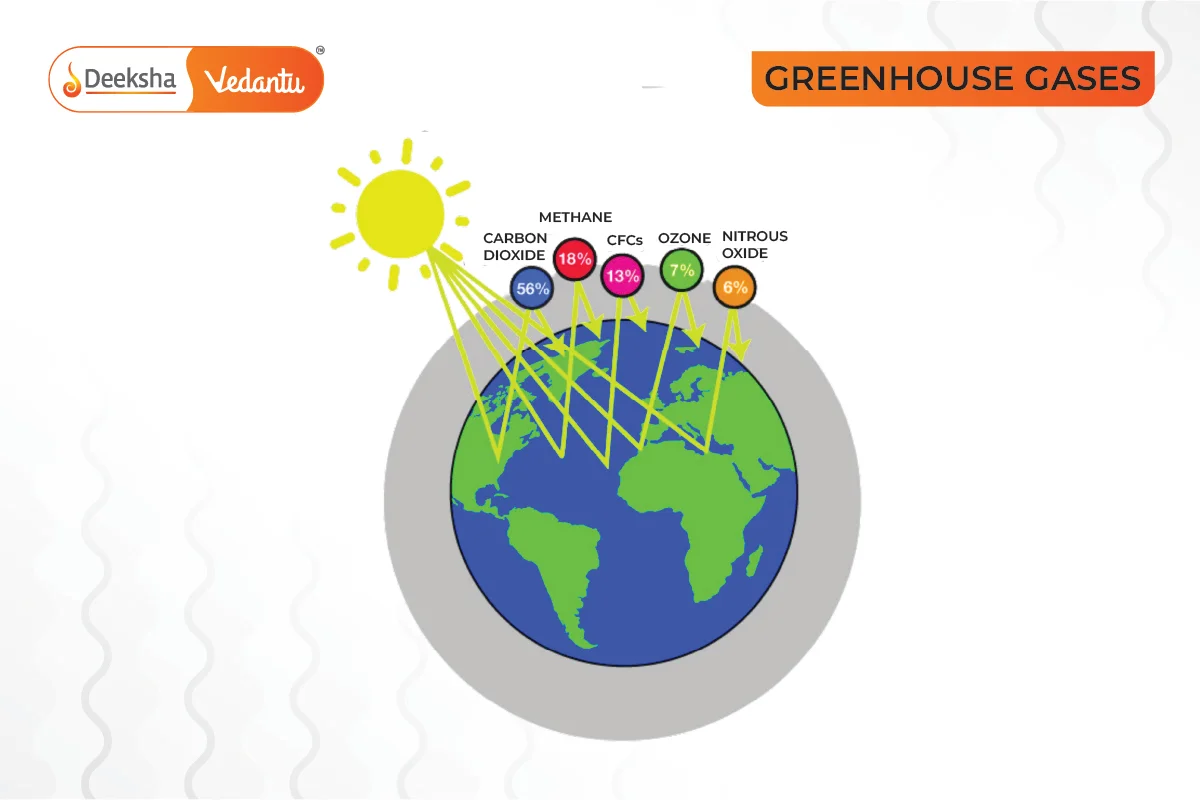What is the Greenhouse Effect?
The greenhouse effect is a natural process essential for life on Earth, where gases in our atmosphere trap the Sun’s heat, preventing it from escaping back into space. It acts like the glass walls of a greenhouse, hence the name, creating a warmer environment that sustains life by preventing Earth from freezing.
The Science Behind the Greenhouse Effect
The Sun’s energy reaches Earth, warming the planet during the day. At night, Earth’s surface cools, releasing heat back into the atmosphere. This heat is absorbed by greenhouse gases like carbon dioxide and methane, which radiate it back to Earth, increasing surface temperatures. This natural insulation is crucial for maintaining a habitable climate.
Greenhouse Gases: The Contributors

Greenhouse gases include:
- Carbon Dioxide (CO2): Primarily released through burning fossil fuels, deforestation, and various industrial processes.
- Methane (CH4): Emitted during the production and transport of coal, oil, and natural gas, as well as from livestock and other agricultural practices.
- Nitrous Oxide (N2O): Comes from agricultural and industrial activities, as well as combustion of fossil fuels and solid waste.
- Fluorinated Gases: Synthetic, powerful greenhouse gases emitted from a variety of industrial processes.
These gases are adept at absorbing infrared radiation, trapping heat in the atmosphere, and leading to a warming effect known as global warming.
Causes of Enhanced Greenhouse Effect
- Burning of Fossil Fuels: Cars, factories, and power generation contribute to a significant rise in CO2 levels, enhancing the greenhouse effect.
- Deforestation: Reduces the planet’s capacity to absorb CO2, increasing the amount in the atmosphere.
- Agriculture: Activities like rice cultivation and cattle rearing produce methane, a potent greenhouse gas.
- Industrial Waste and Landfills: Emit significant amounts of methane and CO2.
Consequences of the Greenhouse Effect
- Global Warming: A steady increase in Earth’s average surface temperature due to rising levels of greenhouse gases.
- Climate Change: Leads to severe weather patterns, affecting ecosystems and human activities.
- Ozone Layer Depletion: Increases UV radiation reaching the Earth, which can cause skin cancer and harm the environment.
- Ocean Acidification: CO2 absorbed by seawater reduces the pH level, harming aquatic life.
- Health Issues: Increased air pollution can lead to respiratory and cardiovascular diseases.
Diagrammatic Representation of the Greenhouse Effect
Imagine a diagram showing the Earth surrounded by a blanket of greenhouse gases. The Sun’s rays penetrate this blanket, warming the Earth. The heat then tries to escape back into space but is trapped by these gases, which radiate it back towards the Earth, increasing global temperatures.
Global Actions and Personal Responsibility
To mitigate the adverse effects of the greenhouse effect, global cooperation and personal responsibility are crucial. This includes transitioning to renewable energy sources, enhancing energy efficiency, and supporting policies aimed at reducing greenhouse gas emissions. On a personal level, reducing energy consumption, using public transportation, and supporting sustainable practices can contribute significantly to these efforts.
The Potential for a Runaway Greenhouse Effect
A runaway greenhouse effect, a scenario where Earth’s temperatures continue to rise until the planet can no longer support life, is a dire possibility if global temperatures are not controlled. This effect could lead to a feedback loop where higher temperatures release more greenhouse gases from natural reserves, further increasing temperatures.
FAQs
While naturally beneficial, an enhanced greenhouse effect due to human activity is harmful as it leads to global warming and climate change.
Individuals can reduce their carbon footprint by using energy-efficient appliances, reducing waste, recycling, and opting for public transport or carpooling.
The enhanced greenhouse effect, due to increased levels of greenhouse gases from human activities, leads to global warming.
Key gases include carbon dioxide, methane, nitrous oxide, and fluorinated gases.
It’s a natural process where gases in Earth’s atmosphere trap the Sun’s heat, maintaining the planet’s temperature.









Get Social